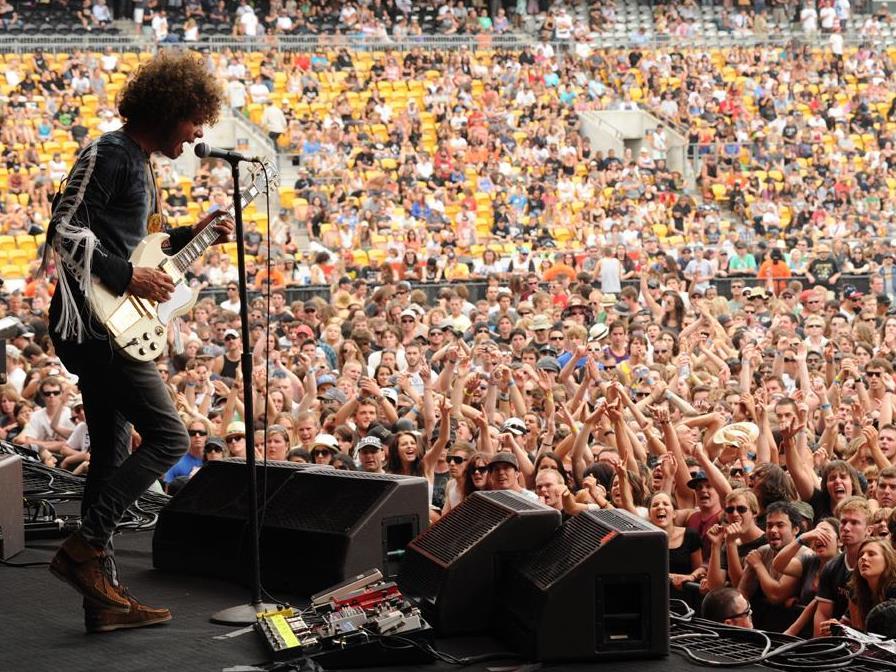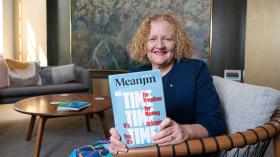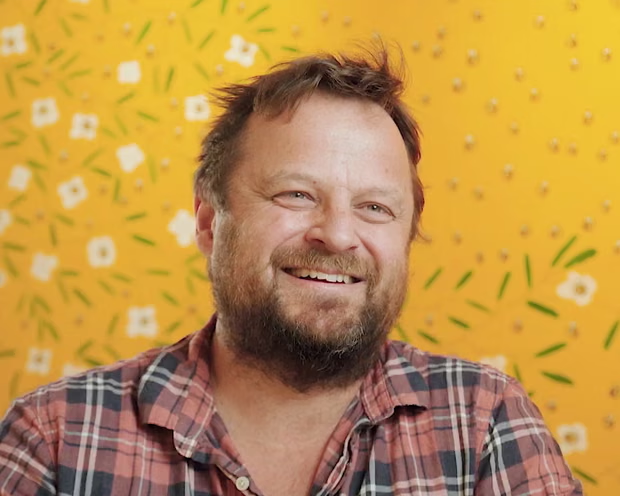Big Day Out 2012 Photo: Tony Mott, Pages Digital
It was mid-2012 and Big Day Out supremo Ken West was opening up about his ‘divorce’ from long-time business partner, Vivian Lees.
‘It was a very clean break and let’s just leave it at that,’ he told Faster Louder’s Sarah Smith. It was one of the less believable quotes in an interview peppered with ironies.
West was trying to hose down the rumours of the Big Day Out’s demise, after a disastrous 2012 season in which the festival cancelled performances by Kanye West in Adelaide and Perth and suffered a bloodbath in ticket sales. ‘We won’t make the mistakes of the past again where things are left too late,’ West said.
It wasn’t to be. Just 14 months later, after another disappointing Big Day Out in 2013, West sold out of the festival. Long-time competitor A.J. Maddah emerged with West’s share of the festival. The controversial promoter, one of the most powerful figures in Australian contemporary music, was immediately attacked as ‘fast and loose’ by Vivian Lees in an interview with Triple J.
Fast-forward to 2014 and the future of the Big Day Out is in serious trouble. Maddah has sold out of the event altogether, leaving the festival completely in the hands of American promoters C3. The colourful promoter was reportedly unable to pay debt covenants related to the vast losses racked up at the sparsely-attended 2014 shows. C3 then cancelled the 2015 festivals.
There’s been plenty of speculation about what happened, and what it means for the future of music festivals in Australia. As Richard Watts reported on ArtsHub last week, contemporary music festivals have been hit by a perfect storm of increased competition, falling ticket sales and an increasingly discerning audience base.
But the Big Day Out suffered from serious management issues. The departure of Lees now seems like the pivotal moment, after which a slow decline turned into a plummet.
Over the years, Arts Hub has spoken to a number of industry insides about the Big Day Out. They tell a common story: Lees was the numbers man, while West was the charismatic front man. For years the partnership was harmonious and complementary. While West would handle the media and fulfil the all-important schmoozing duties, Lees would be hard at work with the spreadsheets.
It’s a common misconception that festivals like the BDO made lots of money in their glory years. The truth was more prosaic. In an interview with the Australian Financial Review in 2006, West revealed that the profit margin for the festivals was as low as 3 per cent. Even back then, the Auckland event lost money. One source suggests that the real profitability came from Lees’ canny use of the festivals’ enormous cash flows to gamble on international money markets.
At the centre of the imbroglio is Maddah, surely one of the most interesting characters in Australian culture. An impresario of the old school, Maddah has a long history of outspoken conflict, and more than his share of disgruntled former collaborators. In Soundwave, Maddah has nurtured a festival with a committed fan base. But he also made enemies across the industry.
As the promoter ultimately responsible for the 2014 debacle, Maddah must take his share of the blame. But in the end, the demise of the BDO may be less about the personality flaws of one man than the broader trend away from omnibus festival experiences, towards tighter, better curated affairs.
There’s been a fair bit of ill-informed whining after the cancellation of the 2015 BDO, best summed up by this article in the Daily Review by Martin Cooke. ‘When you start including jumping castles and Ferris wheels and pirate ships and over-selling gate expectations and embracing capitalism like Bernie Madoff, well, stuff will fall apart,’ he wrote.
There’s a grain of truth in this critique, of course: fans ultimately attend music festivals for the music. Those festivals that have focused ruthlessly on nurturing a loyal audience base by curating the best line-ups possible have tended to outperform an increasingly crowded field. Regional events like Meredith, Woodford and the Byron Bay Blues and Roots Festival all fall into this category.
However, music is a business, even if it is often a hugely risky one. Staging a music festival is a very expensive affair. The costs are high and fixed: portaloo hirers and fencing contractors still need to get paid, whether the punters turn up or not.
Disgruntled punters complaining about boring line-ups forget that artistic credibility doesn’t always bring the masses through the door. Headliners sell tickets, as any promoter knows. Getting the right one for the right price is a fiendishly difficult task, as is balancing the need for a draw card that will sell, while fielding a diverse array of lesser-known but more artistically exciting talent. All in all, festival direction remains very much an art, not a science. In the immortal words of The Producers’ Max Bialystock, ‘never put your own money in the show.’
While the specifics of the BDO’s management debacle undoubtedly matter, the broader impact of the festival’s hiatus is up for debate. Yes, many of us enjoyed formative experiences at the Big Day Out. But the health of large music festivals is not the same thing as the health of the music scene as a whole.
Big festivals can be important incubators for mid-level talent looking for that elusive next step. But they tend to ignore bands below a certain level of popularity, for obvious reasons. The degree to which an early slot in a huge event will grow an act’s audience is something that can probably never be quantified. Underground and emerging acts rarely get the opportunity anyway.
The BDO was an important event for two decades. But no format or company has a permanent lock on audiences. The real health of the Australian music scene is better judged by the density of small-scale nightly gigs and performances in Australia’s pubs, clubs and specialist music venues, rather than the annual orgy of summer fun. According to the Live Performance Australia data out this month, contemporary music is still the largest category of ticket sales. Importantly, the sector is still growing (albeit only slowly).
And what about the Big Day Out? New owners C3 say it will eventually return. According to one industry contact Arts Hub spoke to, the sale of the BDO to C3 may even herald a renaissance for the event, supported by a more professional and international approach.






